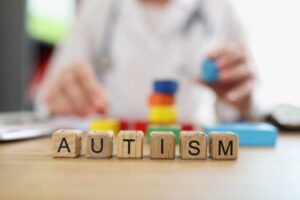autism
A study demonstrates that synbiotic supplementation, alone or combined with GDH, is a safe and effective adjunct therapy for autistic children with DGBI.
Neuroscience
Treatment with the probiotic Lactobacillus murinus improved social behavior and partially restored gut and brain function.
Video, Neuroscience
Emil Chuang, Chief Medical Officer at Intrinsic Medicine, explores the growing understanding of gut-brain axis disorders and the potential of Human Milk Oligosaccharides (HMOs) in their treatment.
Industry, Events
Microbiomepost conducted an exclusive interview with Martina Piacente, from Ebris - European Biomedical Research Institute of Salerno, about the role of gut microbiome in Autism Spectrum Disorder.
Neuroscience
By examining the gut-brain-microbiota axis in typical neurodevelopment, the findings could pave the way for identifying biomarkers for cognition and brain development.
Neuroscience, Pediatrics
The findings of a recent study suggest that L. reuteri eases social difficulties in autistic children.
Neuroscience, Pediatrics
Collaborative initiatives would be needed to detect subtle associations and understand the role of the gut microbiome in the development of psychiatric symptoms over time.
Industry
Axial Therapeutics has published the results of a Clinical Trial investigating a novel molecule for managing symptoms associated with autism.
Gastroenterology, Gynecology
Autistic people who experience inflammatory problems may have been exposed to inflammation in the maternal womb. A new study published in Immunity claims.
Gastroenterology, Neuroscience
A new study published in the Journal of Proteomics is the first to profile the gut microbiota of autistic children, their relatives, and neurotypical children using a metaproteomic approach.












